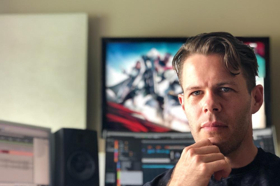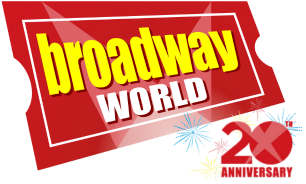Interview: Composer Pieter Schlosser Talks Hulu's LIGHT AS A FEATHER and His Dream Collaborations

Composer Pieter Schlosser took the time to speak with us about his work on Hulu's LIGHT AS A FEATHER, how he got his start, and his dream collaborations. See what he had to say!
Tell me a bit about yourself, how did you get into music?
I was born in Guatemala to a Dutch mother and half German, half American father. Both my parents were and still are big fans of music. My father always loved jazz and my mother always enjoyed 'classical' music. My mother played the piano so we had one at home but I didn't really start music lessons until we moved to Austria when I was about 8 years old. I also started singing in my school's choir and for a moment seriously considered joining the Vienna Boys choir. We ended up moving to Panama so that didn't pan out. This is where I started playing saxophone, which became my principal instrument. After 3 years in Panama we moved to Costa Rica where I decided music was what I wanted to do with my life. I didn't know exactly what, but I'd figure it out.
Why did you decide to pursue composing and how did you break into the industry?
At around age 14, I was consumed by music. I would spend hours either listening to music, practicing or at jazz band rehearsals, wind ensemble or orchestral rehearsals, (provided the orchestral repertoire had saxophone in it, which wasn't often). In which case, I'd just sit in the orchestra as a listener and just switched seats from the strings to the woodwinds, to the brass, etc. This gave me really great insight into each section and what each instrument could do. Fast forward a few years, I applied to the only college I wanted to go to: Berklee College of Music in Boston. This is where I discovered there were so many things you could do in the music industry!
I double majored in 'Music Production and Engineering' and 'Film Composition.' The next step was moving to Los Angeles where I started from the bottom: studio runner making coffee, running errands, and taking out the trash.
Partly through Berklee connections and lots of coffee making, I ended up as a runner at Hans Zimmer's studio in Santa Monica (making more coffee). Eventually, after much persistence, I was hired by one of the composers who was there at the time, Steve Jablonsky. I worked for him for about 5 years where I moved up from being his tech (fixing computers, coordinating with recording studios and musicians, etc) to writing additional music on projects such as 'Desperate Housewives,' the 'Transformers' series and 'Gears Of War.'
I know you traveled a lot as a child, how do you think that impacted your style as a composer?
Traveling is unlike anything else you can experience. It opens your mind exponentially to all aspects of life: food, culture, language, customs. I've always had a good ear and realized early on I could easily mimic accents. When I lived in Austria, for example, I had a German tutor who thought I was just lazy rather than a foreigner who didn't speak German natively because she was convinced I was Austrian because of my accent! There was quite a funny 'aha' moment for her when she realized this!
As far as how it's impacted my style as a composer, that's hard to tell! I'm still suffering from impostor syndrome and feel like I have no idea what I'm doing! I have heard some people say I have a 'sound' but I have yet to figure out what that means.
I would say that being exposed to so many different cultures and languages has helped me to really listen and to adapt to changes very quickly. An essential skill when composing for film, TV, and games!
Your latest project is Hulu's LIGHT AS A FEATHER, how did you get involved with that show?
I had worked with Lee Fleming, Jr., the creator of the show on a previous series several years ago called THE LYING GAME for what is now 'Freeform.' We kept in touch through the years and when I saw that Light as a Feather had been picked up to series, I sent him an e-mail to congratulate him and ask if they had hired a composer. To my luck, they had not! Because there were other executives involved on deciding on a composer, I was asked to put together a demo reel for them. I had a few phone conversations with the other executive producers, mainly Alexis Ostrander, to discuss the direction of the music. I sent them a second demo that was more focused on our discussions and a few weeks later, I got offered the job!
How do you approach the supernatural thriller themes of the show in terms of music and where did you pull inspiration from?
The producers and I had early discussions about what they envisioned for the show. We didn't want to have too much music, which can become like wallpaper, or, as I like to call it, the 'hum of an air conditioner.' When this happens, the music just loses its effect! We also decided not to do the usual jump scares unless the scene really needed it. As far as the palette of the show, I wanted to make sure it was pretty organic. This applied to synthesizers as well, meaning if I used a synth, the sound had to stay away from sounding electronic and stay rooted in living matter.
I pulled a lot of inspiration from THE HANDMAID's TALE score by Adam Taylor, which is a terrific score! I also listened to lots of Harry Gregson-Williams because he uses synthesizers so incredibly well.
Did you use any unconventional instruments or sounds when scoring the show?
The most uncommon instrument used in the show were crystal wine glasses! I love that sound so much and my goal was for the audience to think: 'I know that sound, I've heard that sound but I can't put my finger on what it is!' Well, that finger has to be wet and then rub the edge of a crystal wine glass. It's a really beautifully haunting sound! I also used lots of different voice samples that I mangled and processed. The effect is similar to the wine glass where the audience can recognize the original source up to a point so that it's familiar enough so elicit an emotional response whether they know it or not.
I know you also were a composer for the video game DESTINY 2, how does your approach change from video games to film/tv?
The difference between film/TV and games is that video games are, for the most part, non-linear. This means, overall, the story of the game goes from A to Z but the way you get there is not a straight arch. The player can be in a single level for hours on end so you have to figure out how to support this musically. The music has to be written in a modular fashion where you're able to jump around different moods seamlessly.
Do you have a favorite genre you like to compose for best?
I love working on comedy. This to me is the hardest genre to score and write for. The timing has to be so precise from the writing to the acting to the editing to the score. You can't give away the joke too early, you can't be too late. You have to be really aware of the intention of the joke and hopefully, you have a great picture editor that you get along with!
Do you have a favorite piece you've done?
I'm still trying to find it! I might have favorites in the moment but, like many artists, there's a lot of self-deprecation, which I use as motivation to make my next piece of music better than the last. Having said that, it's less about the actual music than about the process of making it and the people that are involved. Whether it's musicians or producers or directors, the human and collaborative aspect is my favorite. This is especially true as composers because the actual creating can be quite a solitary endeavor.
Light as a Feather was incredibly fun because I felt I was given a lot of freedom. The feedback I got was always very specific and smart, which definitely improved the end result.
Is there one person you'd love to collaborate with that you haven't had a chance to yet?
Oh, boy... this is a tough question. Probably one of the people I've admired most in music is Quincy Jones. What a legend! I would also love to work with Alex Lacamoire. I don't have to tell YOU guys who he is, but in case you don't know: he's one of the most complete musicians working in Broadway right now. Orchestrator, arranger, conductor, musical director (DEAR EVAN HANSEN, HAMILTON, THE GREATEST SHOWMAN).
Do you have any advice for aspiring composers, like anything you wish you knew when you were starting out?
My answer to 'advice for aspiring' anything would be this: Fail faster! What I mean by this is: whatever it is you want to do, start now and start making mistakes. Start failing. The more you do it, the more mistakes you will make and the more you will learn. The most effective way to become proficient in an area is to learn from all the mistakes you make. Let mistakes inspire you! There is never any wasted time in making mistakes. Success is never a straight line.
Do you have other upcoming projects you could tell us about?
I've been working with some friends on a projection mapping project in Mexico. This entails using a building as a canvas or a screen to tell a story by projecting images onto it with large powerful projectors. You can make the building come alive and make it look as if it is changing shape. It's quite impressive! In our case, our canvas is a massive Mayan pyramid in the south of Mexico called 'Edzná'. We tell the story of the Mayan gods and their relationship to people and the earth. It's quite a beautiful and a very immersive experience as the audience walks to the pyramid where they will watch the story that also coincides with an astronomical event later in the month of November.
Learn more about Pieter by visiting his website: http://www.pieterschlosser.com
Check out season one of Light as a Feather on Hulu now!
Image courtesy of Pieter Schlosser
Videos



